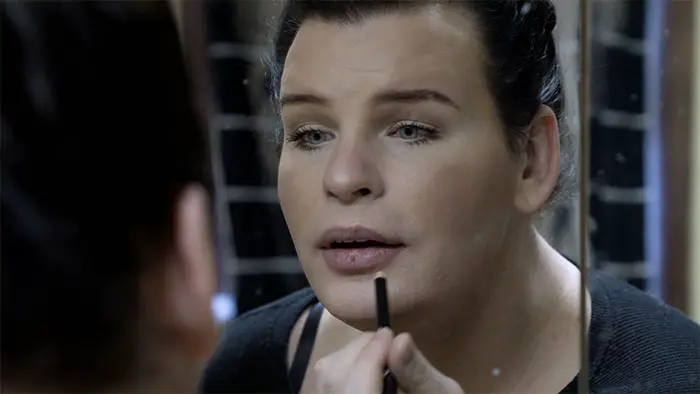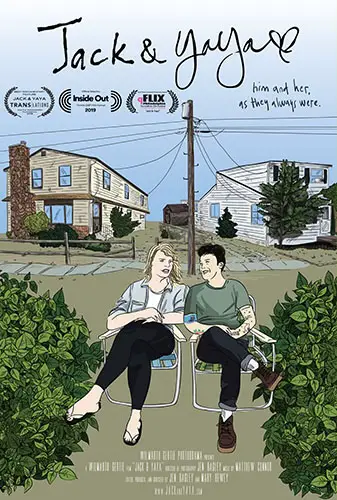
There is a moment toward the end of the delightful new documentary Jack & Yaya that is so bland when viewed through a traditional context, yet so remarkable. Jack and his father sit huddled in the living room with friends and neighbors, watching a tight game on TV. Jack’s lifelong best friend Yaya futzes in the kitchen, also wearing a jersey and frets about the possibility of everyone’s bad attitudes should their team lose, while making snacks for the party and sipping white wine. This is, with no offense intended, a bland American scene. Yet it is this very mundanity that also makes it so wonderfully unique.
Directors Jen Bagley and Mary Hewey focus on telling the true story of Jack (a trans male) and Yaya (a trans female). They met at the ages of two and three to become lifelong best friends while both having been born as the gender that did not match their identity. A unique story and one filled with heart, to be sure. But the story is so much bigger. This is the story of what happens when two mismatched souls find one another for support and understanding and are then supported by a loving, not always understanding, and for the most part, supportive network of family and friends as they search for their place in the world.

“…lifelong best friends while both having been born as the gender that did not match their identity.”
The doc opens as Jack heads back home for the 4th of July weekend to visit family and to spend time with Yaya, who still lives in the home that she grew up in across the street. Yaya has survived her mother’s death to cancer and has made a name in the community. We meet Jack’s father, who welcomes him back home for the weekend with open arms. Again, another utterly forgettable moment made remarkable by the power of acceptance. Bagley and Hewey shoot one on ones with family, both immediate and extended, who recall watching Jack and Yaya grow up. When both of them decide they would like to transition to their gender, the family reacts with a range of non-plussed acknowledgment to approval. Again, nothing dramatic. Nothing unique aside from the fabulous fortune of growing up in a supportive network with a best friend that gets you. NBD.
At another point, Yaya reminisces on how she and Jack would play “house” when they were kids, “Jack always had the long black hair, like John Stamos in Full House, and I was always the mom.” In another scene, we see video footage of Jack as a young girl at Christmas getting a Barbie Styling Head. “Chris (Yaya) is gonna LOVE THIS!” Jack (Jaquiline) exclaims.
Where is the outrage? Where is the drama? Okay, there is a little. Most of which comes from the expectations of society in general or family wishing for the safety and happiness of either of our title subjects. But while those are included, they are not the focus. There is no “consequence” for being different. There is no punishment for being true to one’s identity. No, Jack & Yaya illustrates the universal human truth that we thrive when we are loved. Circling back to that football game, I am reminded again of the normalcy. Mixed genders, orientations, ages, identities, and races, just huddled, feverishly united over the common, arguably frivolous interest in a football game. This is the America that I want to be a part of. With the endearing true story of Jack & Yaya and the power of documentary film, I am given hope that we will unite because of diversity.

"…mixed genders, orientations, ages, identities, and races...united over the common, arguably frivolous interest in a football game."
